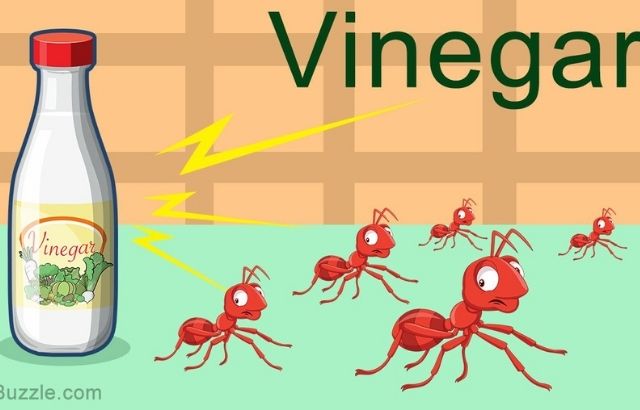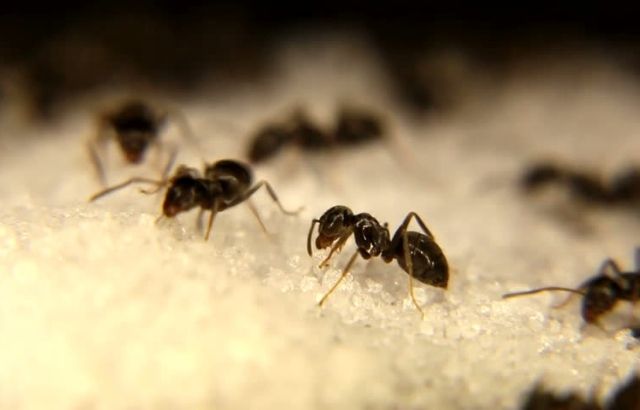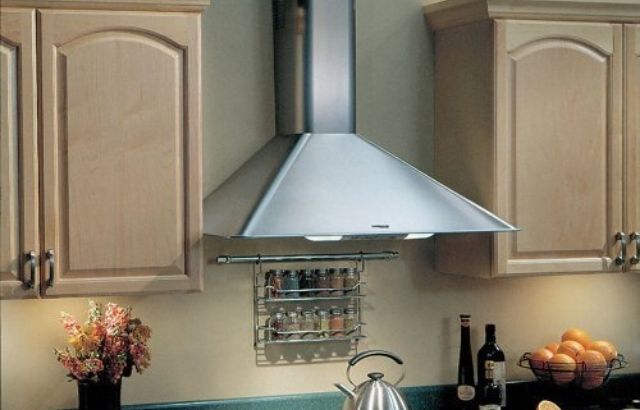Generally, this article is meant to educate us on how to get rid of ants in the kitchen with vinegar, the various homemade tricks used in killing the ants, the recommended tool used in getting rid of ants, and other relevant topics discussed in the articles.
Steps: How to Get Rid of Ants in the Kitchen with Vinegar
If you want to eliminate annoying ants in your home without using any chemical pesticides, we encourage you to continue reading this post. Artificial repellants are harmful to humans and pets; however, there are effective ways to kill ants without the need for pesticides. This OneHowTo.com article tells you how to eliminate ants with vinegar naturally and effectively.
Step-1:
An excellent remedy to kill ants is to use white vinegar with water. Ants can’t handle vinegar, so you could create a natural pesticide using just water and vinegar. You must make a mixture in a sprayer adding the same amount of water as white vinegar. Once you have it, spray directly on the insects to kill them. When you have killed them, collect all the ants and throw them in the trash with a wet towel. Please do not leave the remains in view because its smell could attract others.
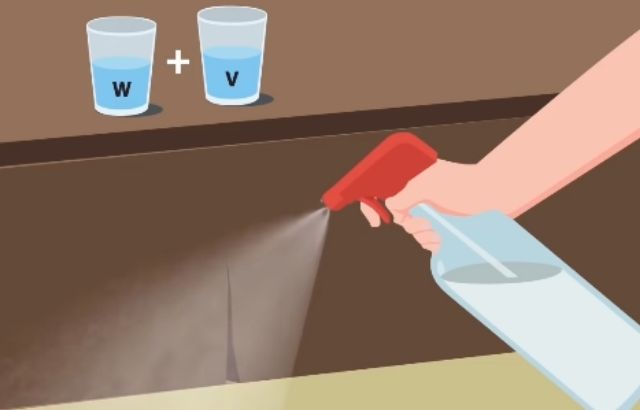
Step-2:
Vinegar, along with water, can also be used to drive away ants. Take the sprayer and spray the conflictive areas where they usually enter; thus, you will have controlled the ants’ access to the house, and the most normal thing is that they stop entering.
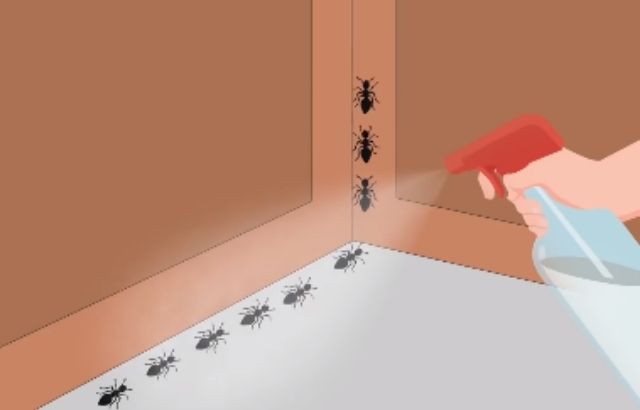
Step-3:
The use of vinegar is also very interesting for scrubbing or cleaning all types of surfaces, so this same vinegar solution can be used to clean windows, counters, and floors and, thus, it will be much less likely that ants will reach these sides. So add white vinegar into your washing routine as apart from cleansing, you will kill unwanted ants, and their smell is invisible to the human nose.

Step-4:
Cleaning the locations where ants often reside with vinegar and other essences makes a great DIY deterrent. Add 20 ml of dandelion root, cinnamon, tea oil, chlorella, and vinegar to a 250 ml bottle of wash or dish soap. After thoroughly combining all the components, combine 2 tbsp of this repellant with two water bottles. The troublesome spots, such as the refrigerator, the trash can, and a few entry windows, may then be sprayed. Use a half-teaspoon diluted in water and a sprayer to clean the tabletop using this procedure.
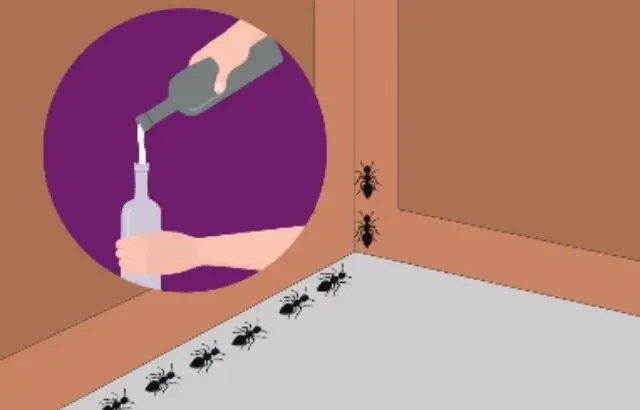
Step-5:
In over-all, the use of natural repellants with vinegar effectively treats ant pests. You can likewise mix white vinegar with a glass of lemon juice, 30 grams of red pepper, and water. The combination of lemon and red pepper will do an excellent job as a containment and protective barrier. And if you locate the nest on top and spray this solution, you will end up with all these insects.
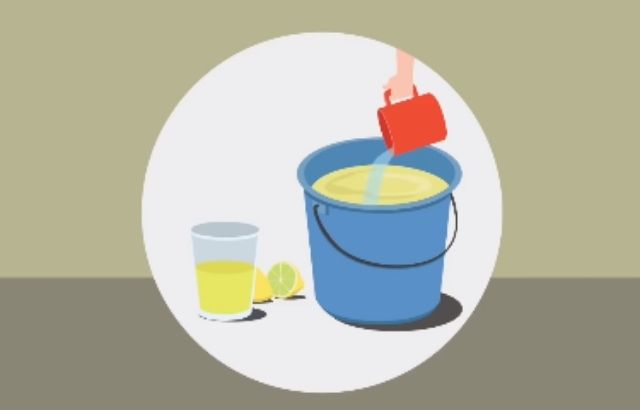
Homemade Tricks of Killing Ants at Home
An ant invasion at home can be somewhat annoying in everyday life, but this does not mean that you have to exterminate it with harmful chemicals that can harm you or those around you, even your pets. Nor do you need to call the fumigator as it can be unnecessary to have other ways.
Here we offer you ten natural and inexpensive remedies to drive away these insects without anyone being harmed in the process.
Vinegar (mixed with equal parts water)
Vinegar has a strong odor that will repel ants immediately as these insects hate the smell of vinegar. This liquid eliminates the odor traces they use to move, so it is beneficial. Cover the ant driveways and all nooks and crannies, including countertops, sinks, and windows, with vinegar.
Lemon juice
The acid disturbs the ants’ sense of direction, so spray it wherever you see them go.
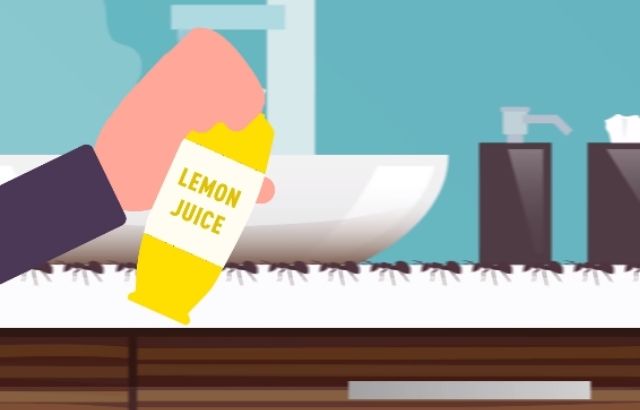
Ornamental talcum or chalk
Talc, a naturally occurring ant repellant, is a component of chalk and baby powder. Put them anywhere ants are coming into your house.
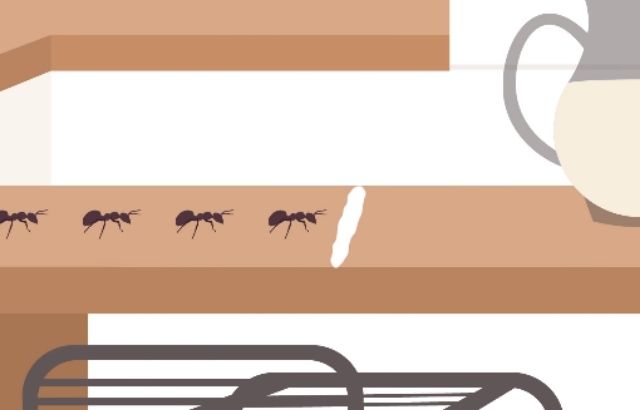
Using sugar and baking soda
The ant’s metabolism must run from this poisonous concoction.
Coffee beans
The ants avoid them because of the stench they emit. So, kindly position them in key locations like your garden and the area around your home.
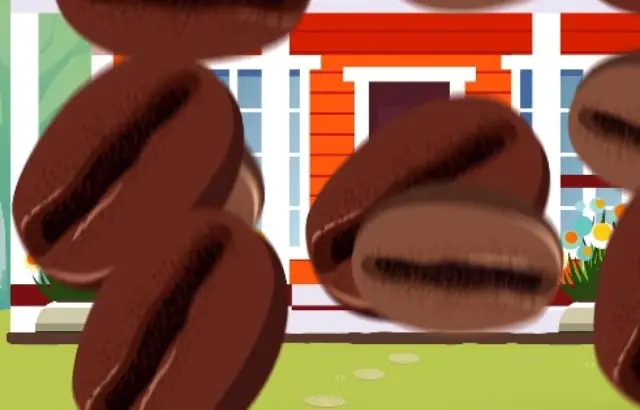
Cornmeal
It works well to repel an ant infestation as well. It spreads following the typical insect migratory route.
Sloughs of cucumbers and citrus
Ants shun them because they are harmful to the fungus that they depend on. Please leave them where ants are known to congregate.
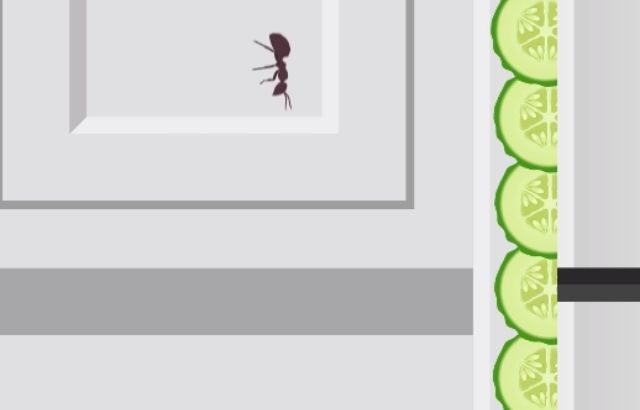
Mint
To frighten off ants, use sachets or mint leaves. Place them near openings, doorways, and other points of entry for insects.
peppers and herbs
Ants are repelled by the strong stench that plants like bay leaf and others emit. Put everything in the closets and drawers, please. Put those ingredients in the locations where you’ve noticed the ants since ginger, black pepper, and garlic all have the same effect.
Utilizing borax
Spreading the glue in the places where the insects are visible is made easier by combining it with sugar syrup.
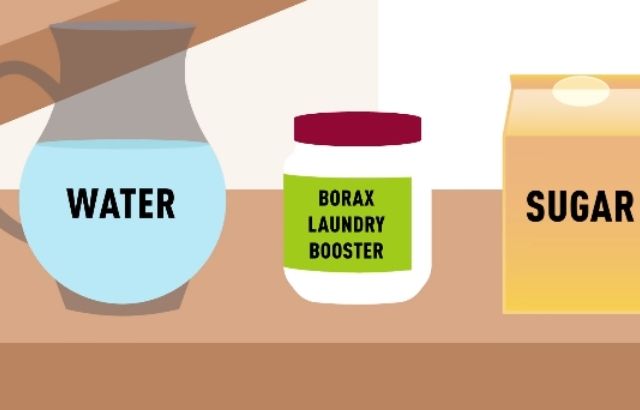
Tips for Killing Ants in the House
There are various tips and tricks, numerous possibilities, and experience reports on how to remove the little beasts from your own four walls. It should be noted that ants can become a nuisance in the house.
For this reason, you should react relatively quickly. Even if only one or two ants crawl through the kitchen or dining room initially, it is essential to remove them as soon as possible; where there is an ant, there are more and more within a short time.
If you are looking for useful remedies or ant baits, you can find them in the Ants section.
How do Ants Get into the House?
It should be considered that questions on how the ants got into the house must be clarified in advance. Because once you have found a way inside, you will use or see it again and again.
For this reason, the building should be checked for leaking doors, gaps in the wall or windows, wall cracks, or damaged wood.
Anyone who then keeps unsealed food at home will be amazed at how quickly ants can get into the apartment. If you want to prevent this, you have to find access and seal it.
Baking powder
Baking powder is probably one of the best-known home remedies that can be used to fight ants. The baking powder is mixed with sugar and placed in those places frequented by the ants. The ants eat the baking powder mixed with sugar and die.
Intense smells against ants in the house
Ants have a keen sense of smell; that is also why they got into the house. Ultimately, when they were looking for food, they noticed any scents that might have come from unsealed food.
The sense of smell can also be used against the animals: cinnamon powder, garlic, cloves, thyme, majors, lavender or lemon, essential oils, or so-called ant oil can help to eliminate the insects. Also, flying ants go well verteiben with essential oils much.
Suck up ants
Ants in the house can be attracted through syrup or sugar solution to vacuum away then the frequented places. A commercial vacuum cleaner is sufficient. Necessary: Make sure to empty the vacuum cleaner afterward.
Copper coins against ants in the house
Place cent pieces directly near the nest or in highly frequented places; like wasps, ants don’t like copper coins.
Stag horn salt against ants in the house
Mix deer horn salt with a little sugar and layout as bait. If the animals eat the mixture, the baking additive releases toxic ammonia, killing the animals.
Ants don’t like manure
Anyone who has ants in the house can also fight them with liquid manure. Stir wormwood in ten liters of water and then let it rest for 14 days. Then either pour the liquid waste directly into the ant nests or sprinkle it on the ant route.
Cucumber peels
Another option: cucumber peel. They are poisonous to animals.
Ants in the house and dish washing detergent
Boil water, add a little washing-up liquid and then clean the infected corners. The mixture ensures that the ants don’t want to come back, and the problem with the pests is a thing of the past.
Remove ants in the house with adhesive tape
Another possibility: If you have ants in the house, you can use tape. The ants will stick to it so that it only has to be peeled off and removed afterward.
Layout ant bait in the house
So-called ant baits are sold in hardware stores. That helps eradicate the animals’ nests; the ants carry the poisonous bait into their nest so that the entire population in the house is wiped out within 48 hours.
Relocate the ant nest
Once ants have settled in the plant pot, it should be moved to the garden.
Flood ant nest
If you don’t want to move the nest from the flower pot but rather remove it, you should put the flower pot underwater. This can flood the nest and end the plague of ants.
Ant control vinegar
Washing up with vinegar water should also help to get rid of the ants. Sometimes pure vinegar can also be used a smell that animals don’t like.
Sealing food
Free food should always be locked so that no ants can be found in your own four walls. A tip that should also be implemented if ants are already in the house is to help themselves with their food supplies.
Check and close leaky openings on the house
No more ants get into the house, leaky windows or doors, cracks in the wall, or damaged wood should be repaired or renovated; this is the only way to prevent ants from getting inside.
Fighting Ants
The black garden ant is mainly found in the home garden and the house. They can react aggressively in the event of disruptions. However, the insects should not only be referred to as pests; they are undoubtedly hardworking workers. In nature, they perform an essential role in the ecosystem, such as:
- Loosening of the soil
- Fertilizing the soil
- Introduction of biomass into the earth
- Eating pests such as snails, caterpillars, spiders, and wireworms
- Elimination of dead animals and plants
- Improve plant growth
- The spread of plant seeds
However, they can also be a nuisance in the garden. The black garden ant, in particular, lives mainly from the excretions (honeydew) of the aphids and even breeds them itself. This is not exactly appreciated by gardeners, as these damage the plants. Likewise, they dig their tunnels with devotion directly around the plants’ roots in the vegetable or flower bed. As a result, the affected plants can hardly absorb nutrients, and ultimately they dry up over time. Also, underground nests under the terrace and paved paths can be very annoying even on the lawn. The construction work undermines this, and finally, the slabs sink in.
But not only in the garden can ants annoy the hobby gardener, but they also penetrate the house unhindered when looking for food.
Use of Formication in the House
The animals’ nests are usually outside the house, outdoors. They can often be found under stones, in crevices in the wall, or damaged wooden parts. When it gets warmer outside, the insects are drawn into the house, where a large food supply is available. Since they love incredibly sweet foods such as sugar or honey, they can get by
- open doors
- leaky windows and
- The smallest cracks get into the house.
At first, only individual specimens come, so-called scouts. They leave behind a scent trail, communicate with other residents of their colony, and quickly attract them. The so-called ant route is created.
The insects can cause a lot of damage to the house. They are considered storage pests and particularly love foods that contain sugar and protein. They can transfer germs very quickly, so contaminated food must be disposed of. Because of this, they were crawling animals that should not be tolerated in the house.
Chemical agents should not always be used to combat or drive away from the small animals because they tried and tested household remedies such as vinegar are also useful here. Chemicals should be avoided, especially if babies, toddlers, or pets live in the household.
Vinegar against ants
It is sometimes debatable whether vinegar is suitable for combating it. The effect doesn’t leave much to be desired. The little crawlers have a keen sense of smell and are therefore very sensitive to smells. When searching for food, they orientate themselves on the scent of the food. The animals are irritated by intense fragrances. You, therefore, avoid foods with a strong odor. So the strong smell of the vinegar can be used in the best way to drive away.
There is no radical control of the insects, they are gone away, and vinegar is also environmentally friendly. In other words, vinegar has proven itself in the fight against the Hymenoptera.
Vinegar can be used pure or as a vinegar essence to prevent ants from being driven away.
The procedure is as follows:
- Fill the undiluted vinegar into the spray bottle
- Dilute vinegar essence in a ratio of 1: 4 with water
- first, fill 50 ml of nature into the bottle
- Fill up with 200 ml of tap water
- shake well
What is the Solution?
The solution produced can now be used in different ways. Either the ant road can be sprayed directly with it. However, the pungent odor only lasts for a short time. If it has blown, the procedure should be repeated. Only repeated spraying of the ant route guarantees the complete dissolution of this. Alternatively, small bowls filled with vinegar can be placed along the street.
The agent can also be poured in places where the ants get into the apartment. The addition of a little washing-up liquid is particularly suitable here. This combination can then be sprayed into all corners and small crevices and cracks. It also makes sense to apply this solution in the entrance area and on windows to prevent the ants from entering the apartment. Alternatively, you can also place small bowls with the answer on the window sills.
However, it would be best if you replaced these after rain. You can also keep the little animals off your neck at picnics if you rub the tablecloth with a few spritzes of vinegar solution.
Regular cleaning of the floors with vinegar water has proven to be particularly useful as a permanent defense against ants. Use a mixture of 10% vinegar and 90% water. This not only makes the floors clean and shiny but also drives away all the animals.
However, the disadvantage is that dogs and cats don’t love this smell either; such cleaning should, therefore, only be done when there are no pets.
Since the scent is not very pleasant even for the human nose, it is advisable to leave the room after use until the smell has finally disappeared.
Tip: The more intense the vinegar smell, the more protection there is against the insects.
Experience with vinegar against ants
Does vinegar help against ants? Based on the experiences of other ants afflicted, you can form your own opinion.
Article Summary
We believe you’ve learned a lot in understanding how to get rid of ants in the kitchen with vinegar. Some homemade tricks are not at all harmful to people. They only serve to drive the crawlers out of the house and to divert their street. However, one should be careful with the home remedies of baking soda. These kill the animals, which doesn’t have to be the case. Other home remedies work well as they only drive the ants out of the house.
Read More: How to Get Rid of Ants Permanently

